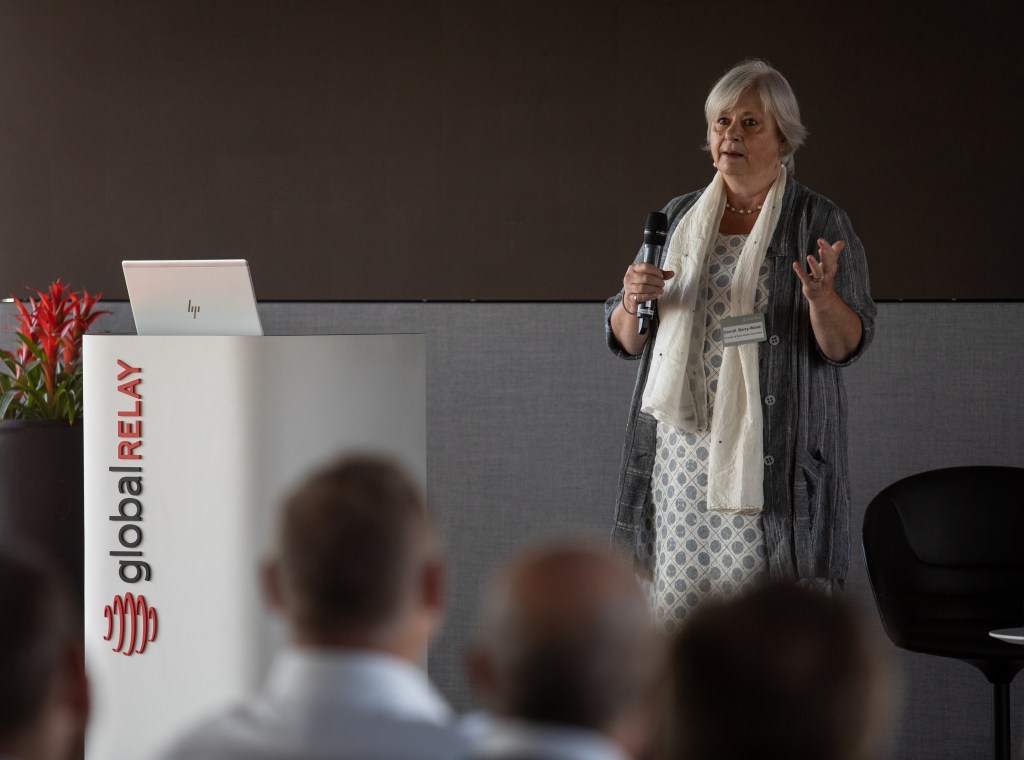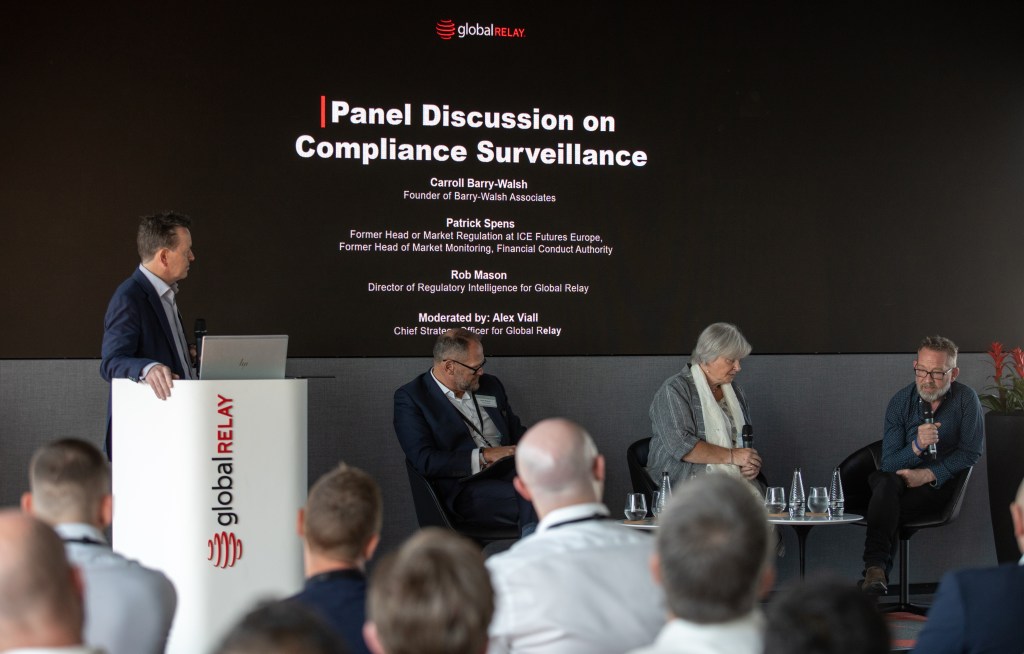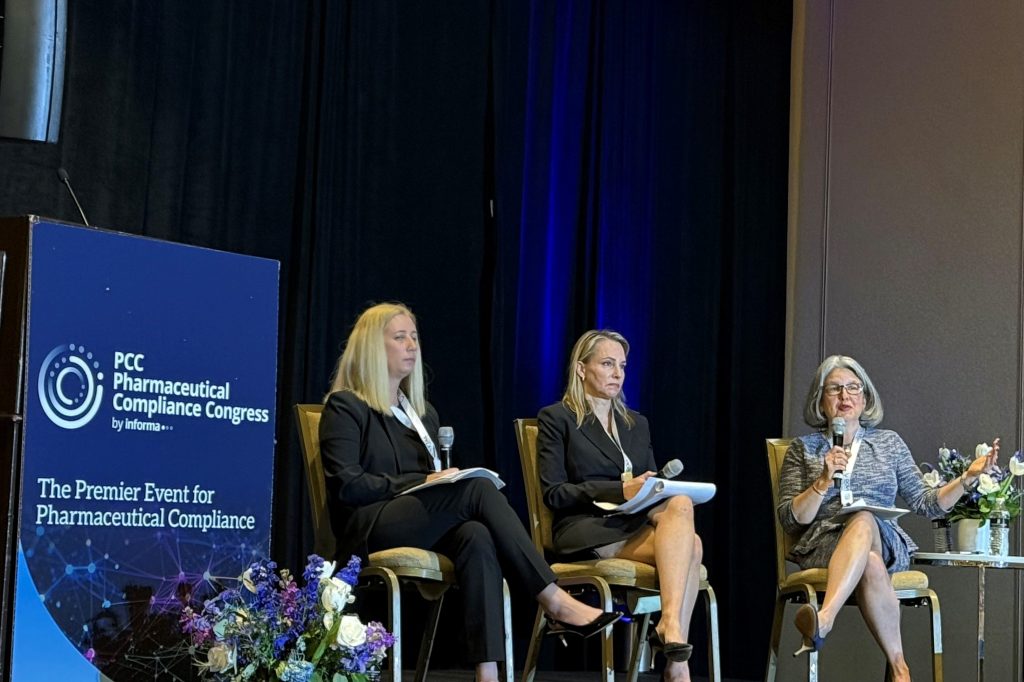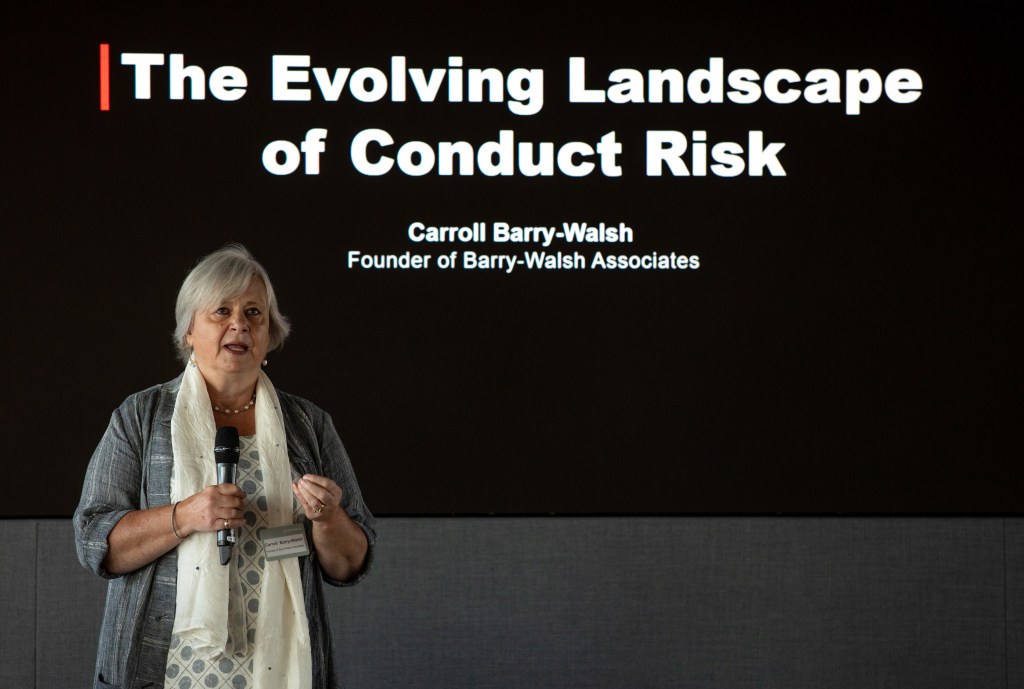If you want to embed compliant behaviour you need to tell stories. That’s what leading financial services lawyer and investigator Carroll Barry-Walsh told a summer gathering of industry professionals hosted by our parent company Global Relay in London Thursday.
“We are hard-wired to understand stories,” Barry-Walsh said, making the point that much of what underpins our notions of morality comes from the stories told in the great holy books.
She was clear that “you can’t get rid of sin” and said that the simple fact was that “if you employ human beings someone will be doing something stupid. And some will be quite senior”. But she said “good conduct should be embedded”, and doing this involved being proactive in getting people to understand it. Hence the need to tell stories that framed conduct issues in real terms.

In an engaging, entertaining and forthright series of contributions, Barry-Walsh also stressed that for compliance regimes to be effective, “the people at the bottom need to see what the consequences are for the people at the top”. She gave the example of a senior manager who got into trouble for personal account dealing sharing his story with the people who worked for him. It was a practical example of showing consequence in a way people could relate to – the telling of a story.
“If you employ human beings someone will be doing something stupid. And some will be quite senior.”
Carroll Barry-Walsh
It was most important, she said, to get to know what is happening, and information should come from internal sources, not regulators or clients. Tools for dealing with problems need to be in place in anticipation of when those problems arise – not cobbled together as a response. The approach should be built around three points, she said.
- Find information – this needs to be accurate, complete and reliable.
- Decide how to address the problem – ideally this needs to be a multidisciplinary approach involving HR, legal and compliance at least.
- Communicate – but think carefully what you are communicating (avoid having a tin ear).
On that final point, communication, Barry-Walsh said there were too many examples of people causing even more reputational damage by “talking rubbish”. She cited one example of a senior manager sending an on-record communication saying that he didn’t think investigators should be called in because it might make his team look bad. “Sometimes I wish I had just gone around with some duct tape to put over people’s mouths,” she said.
“There is a kind of stupidity only very intelligent people are capable of.”
Carroll Barry-Walsh
She also warned against the dangers of the non-apology apology, saying bluntly “don’t look like a numpty” and that, in her experience “there is a kind of stupidity only very intelligent people are capable of”.
Barry-Walsh emphasized the need to be realistic at several points, saying “human nature doesn’t change”. In her view, people misbehave for one of the following reasons:
- greed;
- stupidity;
- complacency;
- hubris;
- cowardice.
The key, she said, was not to believe such behaviour could be eliminated, but to catch it early. But, she warned, “the financial sector is not good at knowing its own history” and so is “doomed to relive the cycle”.
She made particular reference to a culture created by what she called “arrogant young men” and suggested “they need mothers of adolescent boys to manage them, not appraisal by spreadsheet”. And she said putting all the risk and liability solely on compliance people was not fair. People at the top needed to take responsibility, and “good conduct is about being a professional”.

Asked what she believed led to culture change, she listed three things,
- A near death experience – something that presents an existential threat to the business, for example the recent problems at the UK business organization the CBI.
- Effective management from ‘the permafrost level’ – meaning that real change only comes when it is embraced by longstanding levels of the structure that often find it difficult to change their ways.
- Relentless external stakeholder pressure.
In her view, much in financial services, and especially banking, is about managing risk, and it’s easier to see where mistakes have been made after risk management has taken second place to sales. Being able to understand the business is about managing risk could also help to embed a culture in which people ask ‘is this wise?’ rather than ‘can I get away with this?’
“Good conduct is about being a professional.”
Carrol Barry-Walsh
There was laughter after one of Barry-Walsh’s final contributions, in which she responded to a point made by fellow panellist Patrick Spens, a former head of market regulation at ICE Futures Europe and a former head of market monitoring at the UK FCA. Referring to the difficulties of keeping up with burgeoning regulation, Spens said that MIFID had “1.4 million paragraphs, not lines, but paragraphs” and that “this was a lot for people to get their heads around”.
“Yes,” responded Barry-Walsh. “But three of the commandments say don’t lie, don’t steal, and don’t covet what others have. And they say the same thing”.
• Additional reporting by Jean Hurley















